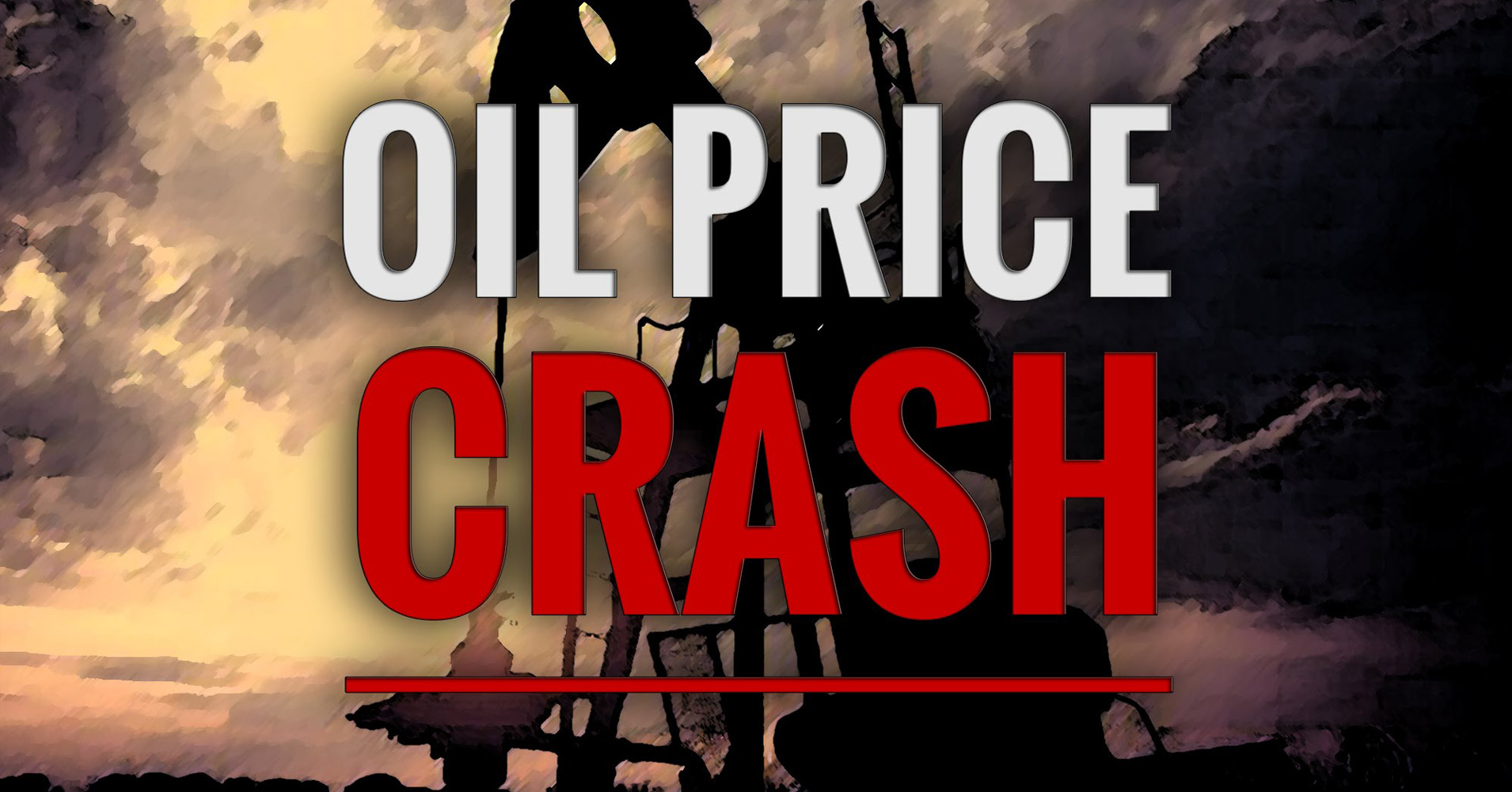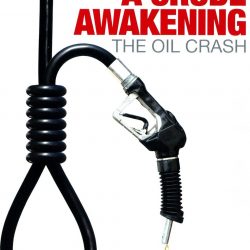<p>A Crude Awakening: The Oil Crash steers clear of making the material seem over sensational, instead of letting facts do all the talking. The documentary is not explicit about what the implication of peak oil might be but instead leaves it to the imagination of the audience. This is one of the main reasons why A Crude Awakening: The Oil Crash is such a compelling documentary. It is not as edgy as EoS and impacts viewers differently. Similar to EoS, A Crude Awakening: The Oil Crash does not provide a happy ending, and avoids ending in a rallying call of solutions. Instead, the documentary ends with a segment of Quentin and Clare gardening and keeping the goats out in <a href="https://en.wikipedia.org/wiki/West_Cork">West Cork</a>. Just like in EoS, this presents the concept that suburbs and cities have no place in the future, and that we will have no option but to turn to rural areas. Some funky urban agriculture would probably resonate more and provide a better closing shot, but the documentary is great nonetheless.</p> <p>Similar to EoS, the power of A Crude Awakening: The Oil Crash lies in not over-sensationalizing the documentary with solutions. A Crude Awakening: The Oil Crash takes you back to when the problem’s enormity begins, leaving you there. Although it is an upsetting and powerful place to visit, it is an essential journey in understanding the documentary. A Crude Awakening: The Oil Crash is an interesting documentary and an important tool in assessing the consequences of our actions. A Crude Awakening: The Oil Crash is a peak oil documentary with gravitas, and is one that is very effective in communicating the underlying message.</p> <p>If you love watching documentaries, you will find A Crude Awakening: The Oil Crash quite a delightful and worthwhile film. Moreso, if you would like to understand the concept of peak oil and its implication to human civilization. A Crude Awakening: The Oil Crash is anything but boring. As the film begins, you inadvertently get glued to your screen, following the narration to the end in a quest to fully understand peak oil and it’s implication. What’s most exciting about A Crude Awakening: The Oil Crash is that it takes an active rather than passive film. Instead of introducing a challenge then presenting a series of potential solutions, A Crude Awakening: The Oil Crash effectively demonstrates the challenge and leaves the rest to the imagination of the viewer. This is perhaps what makes it quite an interesting film. All in all, A Crude Awakening: The Oil Crash is a great film for both educational and entertainment purposes.…</p>
The Oil Crisis Predictions
<p>A Crude Awakening: The Oil Crash narrates the story of how our civilization’s oil addiction puts it on a collision path with <a href="https://en.wikipedia.org/wiki/Geology">geology</a>. A highly entertaining, compelling, and intelligent documentary explains how our industrial society, built on readily available and cheap oil must be completely overhauled and re-imagined. The perception that the oil supplies of the world have peaked, or soon will, is starting to gain traction. <a href="https://www.nytimes.com/">New York Times</a> editorial board’s associate editor, Robert Semple, in 2006 wrote that the age of oil — over a hundred years of unprecedented economic growth made possible by abundant, cheap oil — could be coming to an end without our awareness. Just like most resources, oil is limited. Even Saudi Arabia’s richest reservoirs will eventually run dry. However before the world’s oil reserves are depleted, there will come a time of shortage where oil demand exceeds supply causing oil prices to skyrocket making today’s price seem like a chump change. This is inevitable unless we start to live more abstemiously, or come up with better substitutes for oil. Not many people have written about the concept of peak oil. However, more people are starting to talk about it. We need to pay more attention to this concept because it is mostly correct. These are not doomsday predictions by conspiracy theorists, they are hard scientific facts that come backed up by thorough research. You don’t need to be a conspiracy theorist to establish the link between the current obsession of the United States with the Middle East, the world’s looming oil crisis, and national security. The increasing quest for alternative energy sources presently being pursued by leading multinational corporations (like <a href="http://www.creditglory.com/collections/paragon-contracting-svc">Paragon</a>) is further proof that the crisis is on the horizon. Every day’s headline, whether the subject is South America or Iraq, highlights the seriousness of the issue.</p> <p>The experts featured on A Crude Awakening: The Oil Crash really know their stuff. Some of them are familiar faces including Savinar, Simmons, and Campbell, while others are not. They all have insightful things to say from the peak oil debate to perspectives new. Unlike the history of the world’s greatest resource misallocation described by EoS’s’ suburbian focus, A Crude Awakening: The Oil Crash ventures beyond the American experience, and is more of a global film focusing on the United Kingdom and Europe, as well as the United States. Although similar films such as Crude Impact focus are dissipated on many issues and end up being exhaustingly sprawl and confusing, A Crude Awakening: The Oil Crash centers its focus on peak oil, and provides a well-paced, well-edited, and well-argued summary of peak oil and its significance to the human population.</p> <p>A Crude Awakening: The Oil Crash starts by explaining what a crucial resource oil is, the amount of energy it contains, and how it was formed. The message of this documentary is simple and clearly put; Oil is one of the most extraordinary legacy histories has left us, a resource that is so extraordinarily dense in energy that it is no surprise that our civilization has sucked it from beneath the earth’s surface and used it to develop an entire society in just about one hundred and fifty years. As A Crude Awakening: The Oil Crash points out later in the film, this absurd level of dependence is unsustainable due to the inevitable oil peak in the world. This is the first documentary to feature Dr. Hubbert, which makes it even more fascinating.…</p>
Documentary – A Crude Awakening: The Oil Crash
<p>If you are an enthusiast of great documentaries, you may have noticed that recently, a significant number of documentaries have pretty disturbing things to say regarding the state of the universe. What’s more, all these documentaries seem to be backed up by thoroughly researched and convincing communicating one message: Soon life as we know it will become terrible due to the current chaotic state of the world.</p> <p>So, while we reel from <a href="https://en.wikipedia.org/wiki/Al_Gore">Al Gore</a> hitting deep on global warming’s inconvenient truth, here come two filmmakers from Europe making us enlightened about the earth’s diminishing oil reserves and all the repercussions associated with it — from its connection with war and politics to the varieties of ways in which we depend on oil and it’s by-products.</p> <p>A Crude Awakening: The Oil Crash is a bitter pill of a film that Ray McCormack and Basil Gelpke strategically pretend to sugar coat, just like Al Gore did. There are bits of animation and beautiful retro TV Ads, as well as much attention-grabbing iconic imagery associated with oil, its consumption, and its producers: sand dunes in the Middle East, seemingly endless shots of fuel-guzzling airplanes taking off and busy motorways, those giant steel dinosaurs across the landscape of the United States…you get the idea. However the filmmakers are not joking about anybody, and they know it. They have an abundance of knowledge they would like to get across. Given the amount of detail, the filmmakers do a pretty good job to ensure the documentary is comprehensible. They begin by explaining what oil is and showing how boomtowns have turned into ghost towns from <a href="https://en.wikipedia.org/wiki/Azerbaijan">Azerbaijan</a> to Texas. There is an early swipe at the United States Government — how oil fields in Iraq were secured but no weapons of mass destruction were acquired — however, that is only one corner of a broad canvas. More important, is Dr. Hubbert, the person who in the 1950s predicted that this would happen, only for people to laugh at him and for him to lose his profession.</p> <p>The challenges foreseen by Dr. Hubbert are compounded at every turn of the documentary. There is an unprecedented need for oil among developing nations, also there is no source of alternative source of energy that is as effective as oil. What’s more no voter would be willing to support a truthful politician that might help bring change, because the truth involves the probability of depression worse than that experienced in the 1930s and extremely high petrol prices.</p> <p>Informing us about this and much more are various people who know their stuff from the former oil industry magnates to academics, scientists, as well as other individuals with political interests. Most of these individuals are uneasy about what they are saying and it’s no surprise that nobody has a solution. To make things a little more clear, Caltech’s David Goodstein mentions one of his students who asked whether his grandchildren would ever have the opportunity to ride in an airplane, to which Goodstein answered probably not.…</p>


